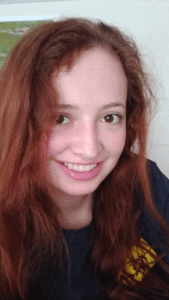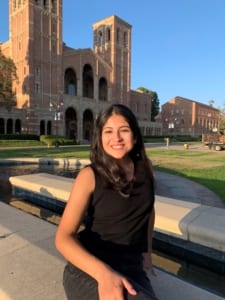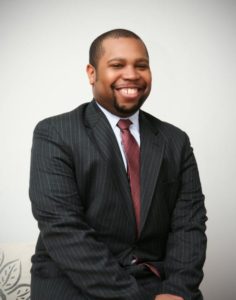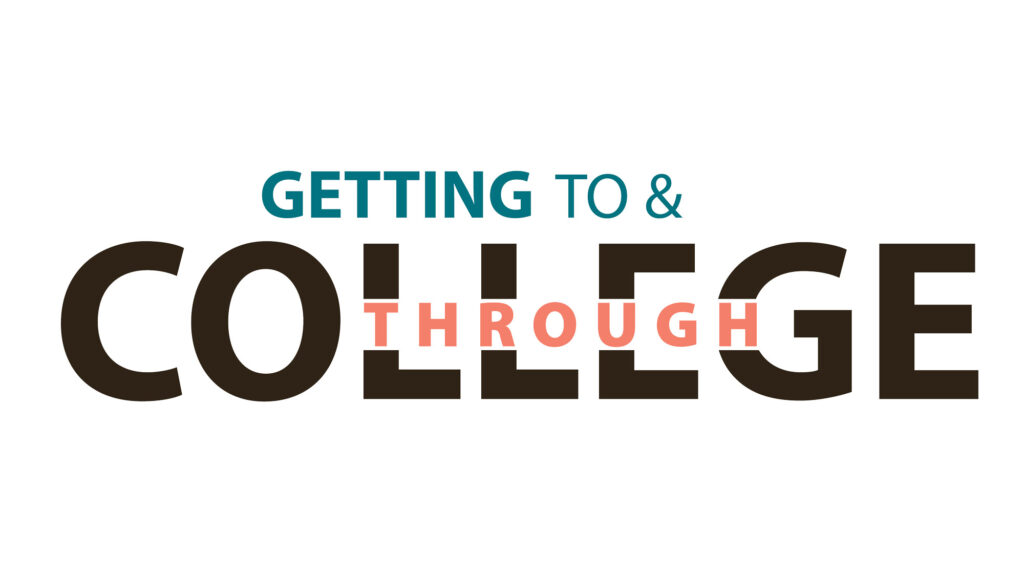Colleges are the pipeline to good jobs and the middle class, yet for many students of color and students from low-income backgrounds, a higher education degree remains out of reach. High college costs are a major factor, but a lack of access to advanced courses is another all-too-common barrier. Advanced courses — such as algebra, biology, chemistry, physics, and high-level English/writing, and history classes, among others — help prepare students for a range of intellectual and professional endeavors, and research suggests that students who take college-level courses — via Advanced Placement, dual-enrollment, or International Baccalaureate programs — in high school are more likely to graduate, go on to college, and earn a degree. Unfortunately, as a new Ed Trust report reveals, not all students have equitable access to such courses. Students of color and students from low-income backgrounds are less likely to attend schools that offer them and are assigned to advanced classes at lower rates than their peers.
It’s time to close that gap and expand access to advanced classes. Those who have taken them cite a host of benefits, ranging from increased confidence; greater academic engagement and college readiness; and the chance to explore subjects and get a head start on higher ed, potentially cutting college costs and time to degree. I spoke with several high-school alumni with advanced coursework experience — all students of color and/or students from low-income backgrounds — about the value of such courses and how taking them has impacted their scholarly lives. Here’s what they said.
First up is Andre Larrea, a 2012 graduate of University Park Campus School (UPCS), a small, public  school in Worcester, Massachusetts, that predominantly serves immigrant students and students from low-income backgrounds and has partnerships with nearby Clark and Worcester State universities. Andre, who was born in Ecuador and spoke no English when he migrated to the U.S. at age seven, believes students of all levels can benefit from rigorous courses, even if they don’t pass their AP exams or get college credit.
school in Worcester, Massachusetts, that predominantly serves immigrant students and students from low-income backgrounds and has partnerships with nearby Clark and Worcester State universities. Andre, who was born in Ecuador and spoke no English when he migrated to the U.S. at age seven, believes students of all levels can benefit from rigorous courses, even if they don’t pass their AP exams or get college credit.
At UPCS, honors classes are standard, and Advanced Placement and college-level courses were options, even if you weren’t an ‘A’ student, he said:
“I was not a high-performing student, but UPCS still gave me an opportunity to take advanced classes and also made sure that I kept up with the group,” even though “it was tough for me to speak English correctly and also to write it.”
Andre was tutored by his AP English teacher, Daniel St. Louis (now the school principal), “to make sure my English was on par with everybody else’s,” but his teacher didn’t cut him any slack.
“He had us read a book and write a report every single week, which really furthered my ability to read and write,” Andre recalled.
In addition to AP English literature, Andre took AP government and college algebra. That early exposure to challenging courses — as well as UPCS’s laser focus on equipping all of its students to finish high school and go on to higher ed — helped him see college as a viable next step and gave him a feel for what it would be like.
“It made the idea of college a lot less intimidating and allowed me to sample classes to get a sense of what I might be good at or would like to study later,” said Andre, noting that “without that opportunity, I probably wouldn’t have gone.”
But go he did. Andre earned a bachelor’s in business administration from Worcester State University in 2015.
While he did not score high enough on his AP exams to earn undergraduate credits at Worcester State, Andre did well enough on the Accuplacer test to skip the math prerequisite and qualify for more advanced courses. What’s more, he was ready for whatever writing challenges came his way: “When I went to Worcester State, my English classes weren’t that hard because I was already used to writing three to five pages a week,” said Andre.
Best of all, Andre completed his bachelor’s degree in just three years.
“I shave[d] off a year of school because I was so used to taking advanced classes at UPCS that I didn’t shy away from taking six classes per semester at Worcester State, instead of the traditional four-class-per-semester load,” said Andre, who not only maxxed out his course load every semester, but took two classes every summer.
Shortening his time to a degree helped Andre to graduate debt-free before going on to grad school. He earned a master’s in public administration from Clark University in 2016 and now works for the Commonwealth of Massachusetts.
Jessica Starkweather is on the fast track, too. Jessica, who was homeschooled until high school,  graduated last summer from Steubenville High School — a public school that predominantly serves students from low-income backgrounds in a once-vibrant steel town near Ohio’s border with West Virginia. Jessica took AP courses in Spanish, biology, chemistry (I and II), and pre-calculus/trigonometry, among others, along with a slew of “College Credit Plus” courses through her school’s partnership with Eastern Gateway Community College, by which students can earn high school and college credits at the same time.
graduated last summer from Steubenville High School — a public school that predominantly serves students from low-income backgrounds in a once-vibrant steel town near Ohio’s border with West Virginia. Jessica took AP courses in Spanish, biology, chemistry (I and II), and pre-calculus/trigonometry, among others, along with a slew of “College Credit Plus” courses through her school’s partnership with Eastern Gateway Community College, by which students can earn high school and college credits at the same time.
As a result, Jessica transferred 48 credits. So while she is technically a freshman at the University of Dayton — a private Catholic school that requires all first-year students to take religion and philosophy — she has a head start on many of her peers and enough credits to be classified as a junior this spring.
“It’s pretty nice,” she said, “because I have most of my gen-eds out of the way: I’m not taking English or math [first] semester because Dayton accepted many of my credits. And I’m in an upper-level child psychology course.”
Jessica feels poised to do well in college, having developed the study and writing habits in high school that will give her an edge going forward:
“It’s really good to have had that practice before college because once you get more freedom and there isn’t a teacher yelling at you to submit the coursework, it’s all on you,” Jessica said.
She also knows what to expect, since at “Big Red’” — as her former high school is known — community college professors “came into the school to teach us.” Her favorite was Professor Stone, who taught two history classes. “His expectations were similar to those of the professors I’ve had here,” Jessica said, “so I feel like my college transition has been a lot easier because of that.”
And having in-depth exposure to a variety of challenging subjects in high school helped Jessica choose her major:
“I’m grateful that I was able to take AP chem and AP bio early on because I went through different phases of thinking about what I might want to do,” she recalled. “I thought about becoming a doctor, but as soon as I started taking chemistry, I realized this is not for me.”
At the prompting of her high school English teacher, who was one of the College Credit Plus teachers, she joined a mock trial program. “That’s when I decided that I wanted to go into law, which then led me to criminal justice, which is my major,” she said.
 Bianka Aguirre, a recent graduate of Artesia High School, a Los Angeles County public school in which most of the students are Hispanic and qualify for free and reduced-price lunch, tells a similar story.
Bianka Aguirre, a recent graduate of Artesia High School, a Los Angeles County public school in which most of the students are Hispanic and qualify for free and reduced-price lunch, tells a similar story.
“Taking AP bio opened up a whole world for me,” said Bianka, who is Mexican American and a first-year pre-med student at UCLA. “If I had taken a regular bio course, it wouldn’t have been as engaging, because we wouldn’t have done as many labs, and I wouldn’t have known that I’m really passionate about science.”
Her AP biology teacher shared internship and volunteer opportunities with the class, which led
Bianka to volunteer at Martin Luther King Jr. hospital the summer after her junior year into her senior year and allowed her to see firsthand what the medical field was like:
“I worked in an outpatient center with cardiologists and also in the general surgery department, so I was in the operating room and was exposed to the medical field at an early age,” she recalled. “I never would have known how much doctors actually collaborate with each other had I not experienced it firsthand. I really like that teamwork environment.”
She also volunteered at health fairs in south Los Angeles — where she helped teach people to eat nutritiously and maintain a healthy lifestyle — and at Charles Drew University’s Saturday Science Academy, where she served as a teacher’s assistant and talked to elementary school students about science. The latter gave her an opportunity to interact with local college students and learn more about universities in the area:
“Most of my colleagues there were students at UCLA or USC, so that gave me a glimpse of college life. Many of them were pre-med and they answered my questions about college, helped me with the application process, and told me what UCLA has to offer — including the diversity of pre-med majors. That’s one of the biggest reasons I came here,” said Bianka, who is majoring in human biology and society, which marries health and social science.
Bianka said her high school AP courses not only made for a smoother college transition — she placed out of writing and math prerequisites, on account of her strong AP test scores, and described her first biology midterm exam as “not too hard” because she’d seen the material before in AP bio — but made her a more motivated and resilient student. She noted, for example, that while she scored well on her AP calculus exam, the subject didn’t always come naturally.
“AP calculus was one of the hardest and most intimidating courses I took in high school,” said Bianka, who was failing it at first. But thanks to after-school study sessions with her math teacher and peers who supported and encouraged one another, and a ton of hard work on her part, she pulled through and eventually come out ahead. “I feel like I gained a lot of confidence from those AP courses because they helped me realize that even though I might feel overwhelmed at times, I’m capable of succeeding,” she said.
In fact, self-assurance and persistence in the face of adversity may be the biggest benefits of advanced courses, according to all those I interviewed.
 Henry Roland Barnes gleaned a different, but no less empowering lesson from his AP experiences. Henry’s father was Liberia’s minister of finance and later its ambassador to the U.S.; his mother was a longtime professor at Howard Community College, in Columbia, Maryland. Now a trial attorney, Henry graduated from Wilde Lake High School, in Columbia, in 2002, before earning a bachelor’s in political science from Hampton University in 2006, and a law degree from George Mason University in 2010. While Henry comes from a family of accomplished people, he traces much of his professional growth to his twelfth grade AP English teacher, Ms. Midgely, with whom he’s still Facebook friends to this day.
Henry Roland Barnes gleaned a different, but no less empowering lesson from his AP experiences. Henry’s father was Liberia’s minister of finance and later its ambassador to the U.S.; his mother was a longtime professor at Howard Community College, in Columbia, Maryland. Now a trial attorney, Henry graduated from Wilde Lake High School, in Columbia, in 2002, before earning a bachelor’s in political science from Hampton University in 2006, and a law degree from George Mason University in 2010. While Henry comes from a family of accomplished people, he traces much of his professional growth to his twelfth grade AP English teacher, Ms. Midgely, with whom he’s still Facebook friends to this day.
“She taught me how to think critically, how to argue, how to formulate and communicate an effective argument — all things one needs to be a successful litigator, which is what I do,” he said.
Ms. Midgely also held him and all her AP students to a higher standard, he recalled, noting that “she was conditioning us for success” and did not tolerate failure or any effort below 110%. To punctuate this point, he described the time he threw together a writing assignment on Pride and Prejudice at the last minute:
“I’d forgotten to do it. So, when she told us to ‘pass up your papers’ and started collecting them, I wrote some foolishness down on a sheet of paper. She took it, pulled out her pen and wrote a zero on it and handed it back to me then and there. She was like, ‘Look, if you’re going to be in this AP class, this is not acceptable.’”
Two things never happened again, Henry said: “One, I have never seen any teacher or professor do anything more ‘gangster’ than that to this day — and I’m in front of judges who throw people in jail every day. And two, I never went into a class or situation unprepared again.”





 school in Worcester, Massachusetts, that predominantly serves immigrant students and students from low-income backgrounds and has partnerships with nearby Clark and Worcester State universities. Andre, who was born in Ecuador and spoke no English when he migrated to the U.S. at age seven, believes students of all levels can benefit from rigorous courses, even if they don’t pass their AP exams or get college credit.
school in Worcester, Massachusetts, that predominantly serves immigrant students and students from low-income backgrounds and has partnerships with nearby Clark and Worcester State universities. Andre, who was born in Ecuador and spoke no English when he migrated to the U.S. at age seven, believes students of all levels can benefit from rigorous courses, even if they don’t pass their AP exams or get college credit. graduated last summer from
graduated last summer from  Bianka Aguirre, a recent graduate of Artesia High School, a Los Angeles County public school in which most of the students are Hispanic and qualify for free and reduced-price lunch, tells a similar story.
Bianka Aguirre, a recent graduate of Artesia High School, a Los Angeles County public school in which most of the students are Hispanic and qualify for free and reduced-price lunch, tells a similar story. Henry Roland Barnes gleaned a different, but no less empowering lesson from his AP experiences. Henry’s father was Liberia’s minister of finance and later its ambassador to the U.S.; his mother was a longtime professor at Howard Community College, in Columbia, Maryland. Now a trial attorney, Henry graduated from Wilde Lake High School, in Columbia, in 2002, before earning a bachelor’s in political science from Hampton University in 2006, and a law degree from George Mason University in 2010. While Henry comes from a family of accomplished people, he traces much of his professional growth to his twelfth grade AP English teacher, Ms. Midgely, with whom he’s still Facebook friends to this day.
Henry Roland Barnes gleaned a different, but no less empowering lesson from his AP experiences. Henry’s father was Liberia’s minister of finance and later its ambassador to the U.S.; his mother was a longtime professor at Howard Community College, in Columbia, Maryland. Now a trial attorney, Henry graduated from Wilde Lake High School, in Columbia, in 2002, before earning a bachelor’s in political science from Hampton University in 2006, and a law degree from George Mason University in 2010. While Henry comes from a family of accomplished people, he traces much of his professional growth to his twelfth grade AP English teacher, Ms. Midgely, with whom he’s still Facebook friends to this day.
